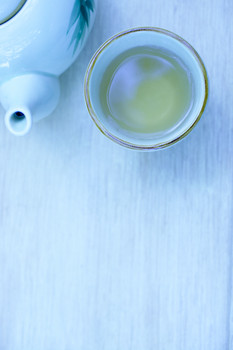Jul 5 2005
 In what will come as a surprise, and a disappointment to many advcates, the U.S. Food and Drug Administration (FDA) said last week that drinking green tea is highly unlikely to help prevent breast, prostate or any other type of cancer.
In what will come as a surprise, and a disappointment to many advcates, the U.S. Food and Drug Administration (FDA) said last week that drinking green tea is highly unlikely to help prevent breast, prostate or any other type of cancer.
The FDA said, after reviewing the evidence to support the health claim, only one "weak and limited" study shows that drinking green tea can reduce the risk of prostate cancer, and existing evidence does not support qualified health claims for green tea consumption with a reduced risk of any other type of cancer.
The increasing number of consumers, both in the US and Europe, buying green tea for its widely reported health benefits has been fuelled by a number of studies in recent years which have suggested that compounds in green tea appear to slow the growth of cancer cells in the lab, while epidemiological studies have shown an association between green tea drinking and a lower risk of breast and prostate cancer.
Recent research has found that consumption of green tea products in the UK has increased 87 per cent between 2000 and 2003, and analysts say the health issue is probably the most important factor behind this growth.
Most of the research on green tea has focused on its potential to help prevent cancer, but the FDA says there is scant science to support this claim.
The FDA did not however comment on green tea extracts nor purified epigallocatechin gallate (EGCG), an antioxidant found in the tea that is often studied for its anti-cancer effects.
Dr Sin Hang Lee, the scientist who submitted a request with the FDA for a green tea health claim, says that the studies assessed by the FDA may not have had access to populations consuming sufficient amounts of the beverage.
Dr Lee, who markets a green tea health drink through his company Fleminger, claims a qualified health claim should be based on a National Cancer Institute (NCI) recommendation on the amount to be studied in anti-cancer research - daily consumption of 40 ounces of typical green tea containing 710(mu)g/mL of the antioxidant compound epigallocatechin gallate (EGCG).
Lee says the NCI standard, published in 1996, is based on the traditional green tea drink consumed by the residents living near tea plantations in China and Japan.
He says that the "lack of ready access is likely to have prevented the studies from utilizing the standard recommended by both the NCI and our efforts for evaluating health benefits of green tea".
As there is currently no legislation permitting disease risk reduction claims, and most producers in Europe market the antioxidant potential of the beverage.